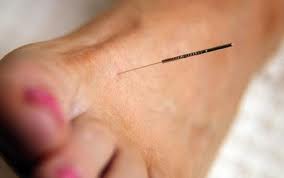
Acupuncture works to treat lazy eye
by David Gutierrez, staff writer
(NaturalNews) Acupuncture works as well at treating lazy eye as conventional Western therapies, according to a study conducted by researchers from the New York Eye and Ear Infirmary.
“Lazy eye,” officially known as amblyopia, is characterized by markedly poor vision in one eye. It is the most common cause of childhood vision problems and can be easily corrected with glasses or contact lenses before the age of 7. After that age, the condition is harder to correct and is usually treated with therapies that deliberately handicap the strong eye in order to force improvement in the weak eye. One common therapy involves wearing a patch over the strong eye, while another involves using vision-blurring drops in that eye instead.
For the new study, researchers assigned 88 Chinese children between the ages of 7 and 12 who suffered from lazy eye either to undergo five traditional sessions per week for the condition or to wear a patch over their good eye for two hours per day. All participants were also given new glasses and instructed to perform near-vision activities for an hour a day.
After 25 weeks, 70 percent of participants in both groups had improved by two lines on an eye chart, the equivalent of improving from 20/40 to 20/25. In terms of recovery, acupuncture was far more effective than an eye patch: only 17 percent of children in the eye patch group experienced a complete recovery, compared with 42 percent of children in the acupuncture group.
Acupuncture provides distinct advantages over conventional therapies, in that it imposes limited hardship on the patient. In contrast, vision-blurring drops can make homework difficult, and children can face severe social stigma for wearing eye patches.
Unfortunately, five weekly acupuncture sessions require a greater time commitment from parents. In addition, few acupuncturists in the United States are trained to treat lazy eye.
Nevertheless, the researchers hailed their findings as promising.
“Don’t knock Chinese medicine,” senior researcher Robert Ritch said. “It’s been around for more than 3,000 years and there’s a lot we don’t understand yet.”